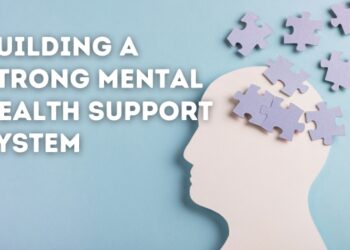Work-related stress is something many of us face. Stress can impact our productivity and well-being, whether it’s tight deadlines, difficult coworkers, or the pressure to perform. However, there are effective strategies to help manage this stress and improve our work life. In this article, we’ll explore some practical tips to help you cope with work-related stress in an easy-to-understand way.
Understanding Work-Related Stress
Before discussing strategies, it’s important to understand work-related stress. It occurs when the demands of the job exceed one’s ability to cope. Symptoms can include anxiety, fatigue, irritability, and even physical health issues. Recognizing these symptoms is the first step in addressing stress.
Acknowledge Your Feelings
The first step in managing stress is to acknowledge how you feel. It’s normal to experience stress at work, but it’s essential not to ignore it. Take a moment to reflect on your emotions. Ask yourself:
- What situations make me feel overwhelmed?
- How does stress affect my mood and productivity?
Prioritize Your Tasks
One common source of stress at work is feeling overwhelmed by a long to-do list. To combat this, prioritize your tasks. Start by writing down everything you need to do. Then, categorize them into three groups:
- Urgent and Important: These tasks need immediate attention.
- Important but Not Urgent: Plan to tackle these tasks soon.
- Neither Urgent nor Important: Consider whether these tasks must be done.
Break Tasks Into Smaller Steps
Once you’ve prioritized your tasks, break them down into smaller, manageable steps. This can make large projects feel less daunting. For example, instead of saying, “I need to complete this report,” break it down into:
- Research necessary information
- Create an outline
- Write the introduction
- Gather supporting data
Practice Time Management
Effective time management can significantly decrease work-related stress. Here are some strategies to help you manage your time better:
- Set Specific Goals: Clearly define what you want to accomplish each day. Setting realistic goals can help you stay focused.
- Use a Planner: Whether digital or paper, having a planner can help you keep track of deadlines and meetings. This way, you’ll be less likely to forget important tasks.
- Establish Routines: Create daily routines to help streamline your work. Having a schedule can reduce uncertainty and help you feel more in control.
Create a Positive Work Environment
Your work environment plays a significant role in how you feel. A positive and supportive atmosphere can help reduce stress. Here are some ways to create a more positive work environment:
- Personalize Your Space: Bring personal items, such as photos or plants, to make your workspace more comfortable.
- Stay Organized: A clutter-free workspace can lead to a clearer mind. Spend a few minutes each day tidying up to maintain an organized area.
- Build Relationships: Foster positive relationships with coworkers. Having supportive colleagues can significantly improve your work experience.
Take Breaks
It might seem counterintuitive, but taking breaks can increase productivity and reduce stress. When you work long without a break, your brain can become fatigued, decreasing focus and increasing stress. Try these break strategies:
- Take Short Breaks: Every hour, take a 5-10 minute break to stretch, walk, or simply breathe. This can help recharge your mind.
- Lunch Breaks: Use your lunch break to step away from your desk. Enjoy your meal, take a walk, or engage in a relaxing activity.
- Mindfulness Practices: Consider incorporating mindfulness or meditation into your breaks. Even a few minutes of deep breathing can help reduce anxiety.
Learn to Say No
Sometimes, the source of stress comes from taking on too much. Knowing your limits and learning to say no when necessary is essential. Here are some tips for saying no effectively:
- Be Honest: If you’re overwhelmed, communicate your feelings to your supervisor or colleagues. They may not realize how much you’re handling.
- Offer Alternatives: If you can’t take on a task, suggest someone else who can help or propose a later deadline.
- Practice Assertiveness: Saying no doesn’t have to be confrontational. Be polite but firm in your response.
Maintain Work-Life Balance
Achieving a healthy work-life balance is crucial for reducing stress. Here are some strategies to help you maintain that balance:
- Set Boundaries: Clearly define your work hours and stick to them. Avoid checking emails or taking calls after hours.
- Make Time for Yourself: Engage in hobbies or activities that bring you joy outside of work. Whether you read, exercise, or spend time with family, make time for what you love.
- Disconnect Regularly: Consider setting aside time to unplug from technology. This can help you recharge and focus on your personal life.
Conclusion
Managing work-related stress is a continuous process that requires self-awareness and proactive strategies. Acknowledging your feelings, prioritizing tasks, and creating a positive work environment can reduce stress and improve overall well-being. Remember to take breaks, learn to say no, and seek support when needed. Implementing these strategies allows you to navigate work-related stress more effectively and create a healthier, more balanced work life.







